Not too long ago René took a six-year hiatus from making art. Prior to this break, his work was figurative, steeped in symbolism and metaphor, and extremely detailed; often taking over 100 hours to complete. He was driven by an intense sense of beauty and an almost overwhelming feeling of anguish over trying to express what he saw and felt. His works depicted an allegorical expression of that anguish and beauty. But as René started to find more financial and critical success with this work, he also became untethered to his original intent. He grew disillusioned by so much in relation to expectations, ownership, meaning, etc, and one day, simply stopped painting, thinking he would never paint again.
Six years later, René woke up one morning with a sudden compulsion to paint again. Now his work is more abstract and improvisational, like a visceral response. It is still driven by beauty and an overwhelming desire to express that ineffable and almost breathless sense of wonder but in a far less didactic way.
Can you tell us about your process?
When I started painting again I started from scratch. I had no materials, limited space, and honestly no idea what I was or would be doing. For my process, I gather the simplest things: tissue paper, varnish, and a few wood panels. I start with no preconceptions. I put on music, usually something by Phillip Glass, Nick Cave, Bjork, Radiohead - that sort of thing, and try to hear and feel shapes and colors in the music. Responding to the intensity of the music, my surroundings, or my thoughts, I cut out shapes, rip paper, and start building and layering until I feel a balance that starts to replicate what I am feeling inside. 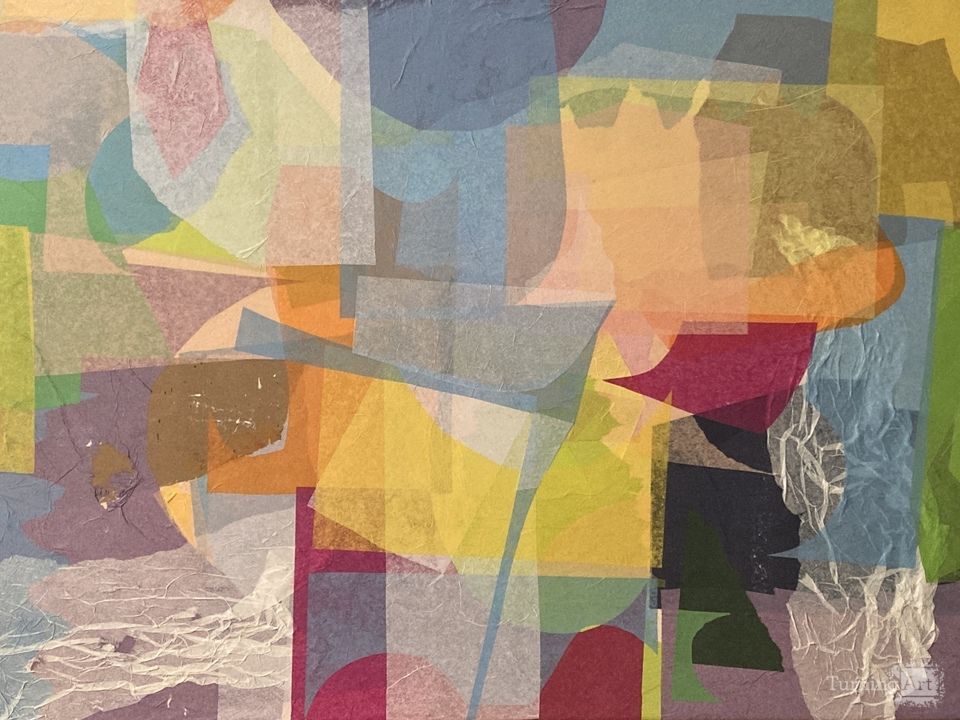
Can you tell us about your journey to becoming a professional artist?
I grew up in a family that valued expression and an environment that nurtured creativity, curiosity, and a sort of deviance toward the norm. I was always one who felt things very deeply, and early on in my life became obsessed with books and different ways of seeing and expressing the world. I originally set out to study philosophy and psychology but felt too bound within both those disciplines. On a whim, I applied to art school and there found a conduit for what I felt was building in me for a lifetime up to that point. As far as the journey beyond that goes, making art was what I felt compelled to do so there was no question that I would make that my life. Everything I did was in service to that, so all the hardships and sacrifices were also just part of the process.
When you are looking for inspiration, what resources do you turn to?
Music plays a big part, also books and my own writing; anything that stokes that flame. And always nature too—the stars, the ocean…clouds, vistas, and on and on.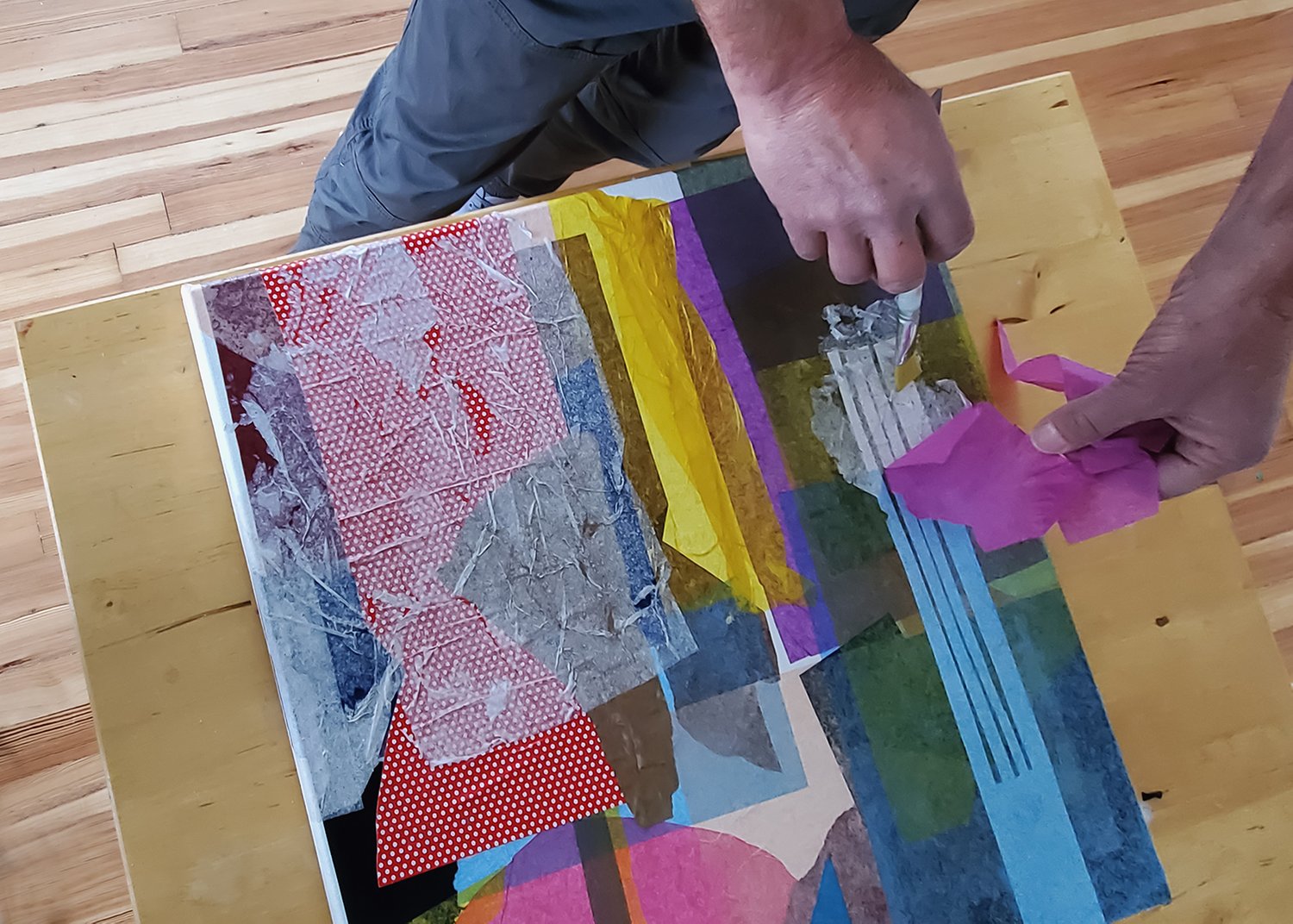
Walk us through a typical day in your studio. What is your routine?
I have so many routines and rituals! Every day starts with a couple of cups of coffee. Some reading, perhaps a little mindless internet surfing, breakfast…I’ll take a long run in the hills. I love the silence, just hearing my heartbeat, my breathing, and the sound of my feet hitting the dirt. Everything is sort of a build-up to creating. I also wander often through the house, looking for things to distract me until I can’t stand it any longer and have to get to painting. Sometimes I work for ten minutes, sometimes I work in spurts, and often I work until I lose all track of time and ten hours have passed. My routine is about what brings me balance and primes me to be open to input and stimuli. But I have no expectations or demands about how a piece comes to be.
Finding the right rhythm to be productive in the studio can be a challenge, what advice do you have for staying productive and focused?
Make a decision. Decide if you need to make art and hold yourself to it.
What advice do you have for combating creative block?
Don’t fight it. Ride it out, explore other things, and see where it’s taking you.
As an artist, how do you measure success? Can you recall a specific event in your career that made you feel successful?
I think at the beginning of my career I had small indications of “success” that quelled my fears of inadequacy. Getting into art school, having instructors who valued what I did, getting into a group show here and there. And of course, I found that when I started selling my work people stopped asking me when I was going to get a real job. But all these things are external and the ultimate arbiter of my success is my own sense of fidelity to my vision. 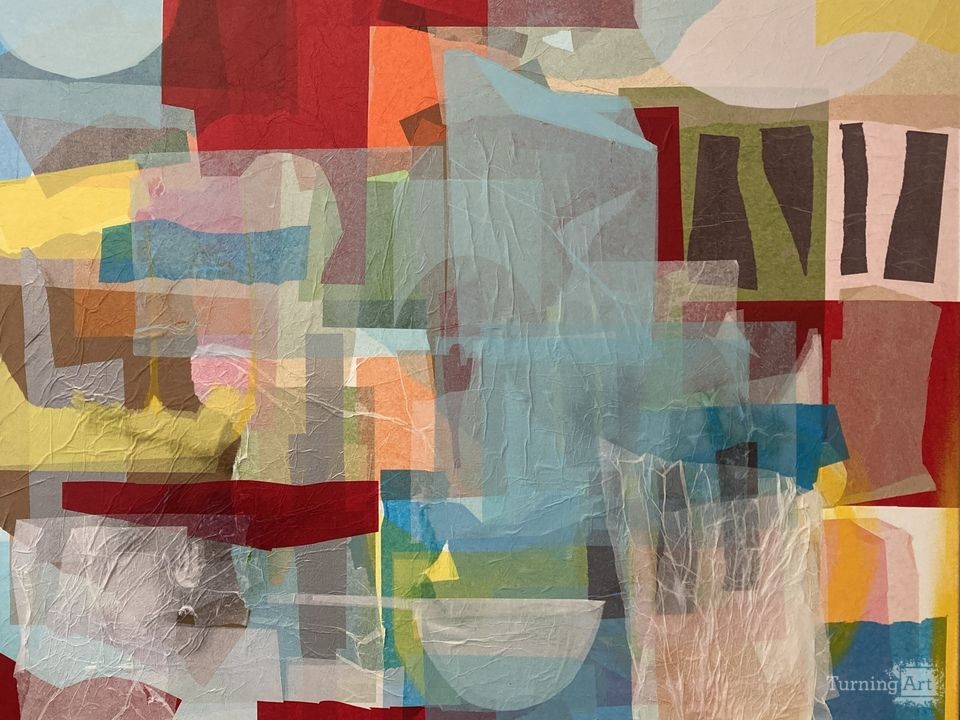
How do you see the art market changing? Where you do see yourself in this transition?
It’s interesting. I think about this all the time. So much has changed since I put down my brushes and picked them up again. In my first incarnation as an artist, there was no social media, almost everything was done through personal connections, cold calling, attending art openings, and trying to meet the “right” dealers, collectors, critics, etc. There was very little that could be done without the sanction of those gatekeepers. I’m still learning how this all works now. It can be overwhelming, the sheer number of people making art and self-promoting is overwhelming, and while it can be inspiring, I very often find myself questioning the value of putting more images or “things” out into the world. This is another reason that our success cannot be determined by outside validation.
What advice do you have for artists who are beginning to build their careers?
I say figure out why you’re doing what you’re doing and be clear and honest with yourself about that. If you are compelled to make art, then make art. You’ll figure out the rest along the way. Do things in service to your vision, be willing to make the necessary sacrifices and if something feels wrong, follow your gut. 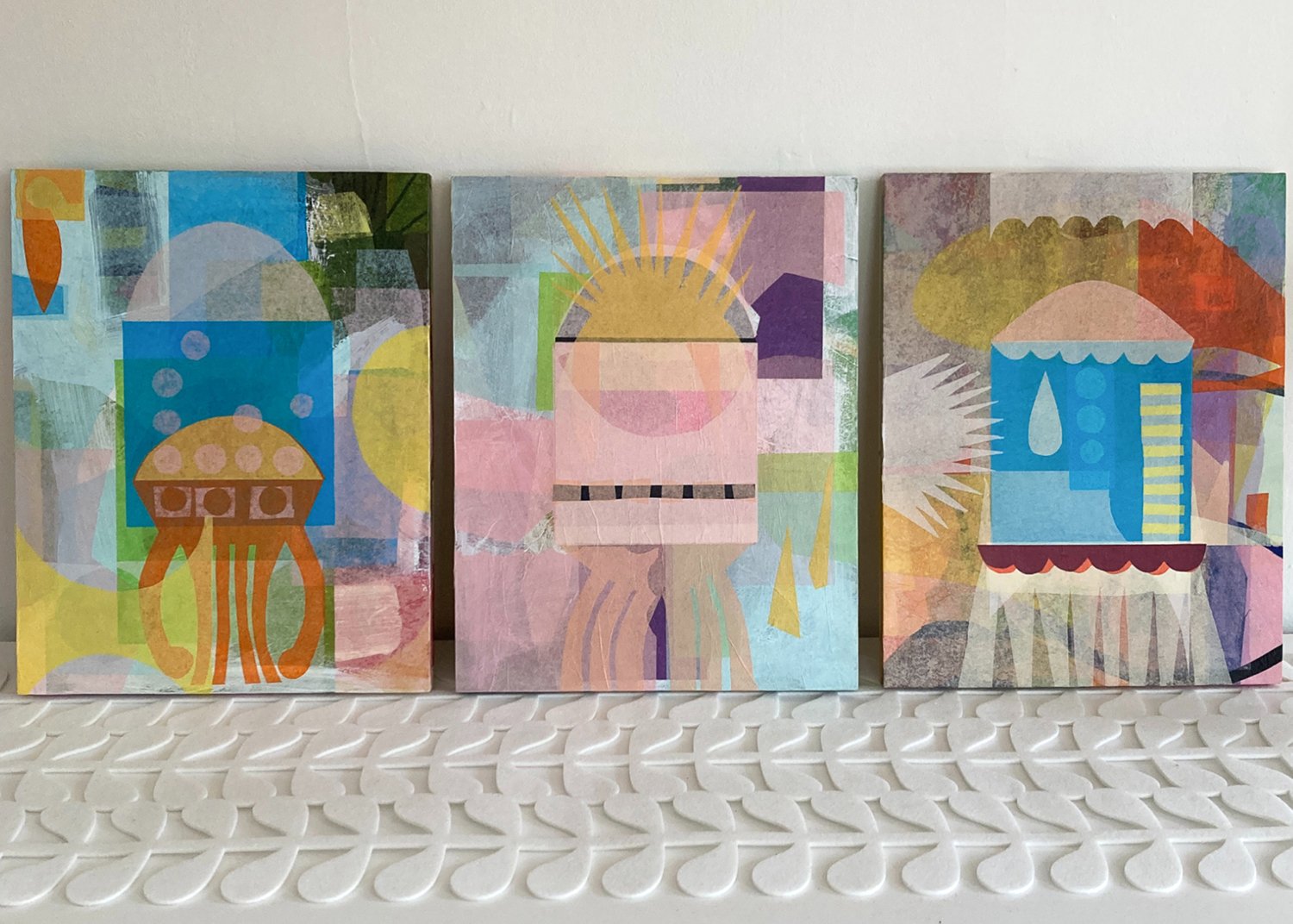
Do you consider yourself, and all artists, to be entrepreneurs? Why or why not?
If by entrepreneur you mean “a person who undertakes a project” then yes. But that word means so many things. I think self-promotion has become perhaps a larger part of an artist's toolbox but the right promotion can elevate just about anything even if it has no substance. So I guess we do what we do and hope for the best. I find it most helpful when we have someone near us who believes in us and our work. I probably wouldn’t want to think of myself as an entrepreneur or be thought of by others as one.
Failure is an inevitable part of success in any field. Do you have advice for overcoming setbacks?
I do. Make sure you have something no one can give you and no one can take away.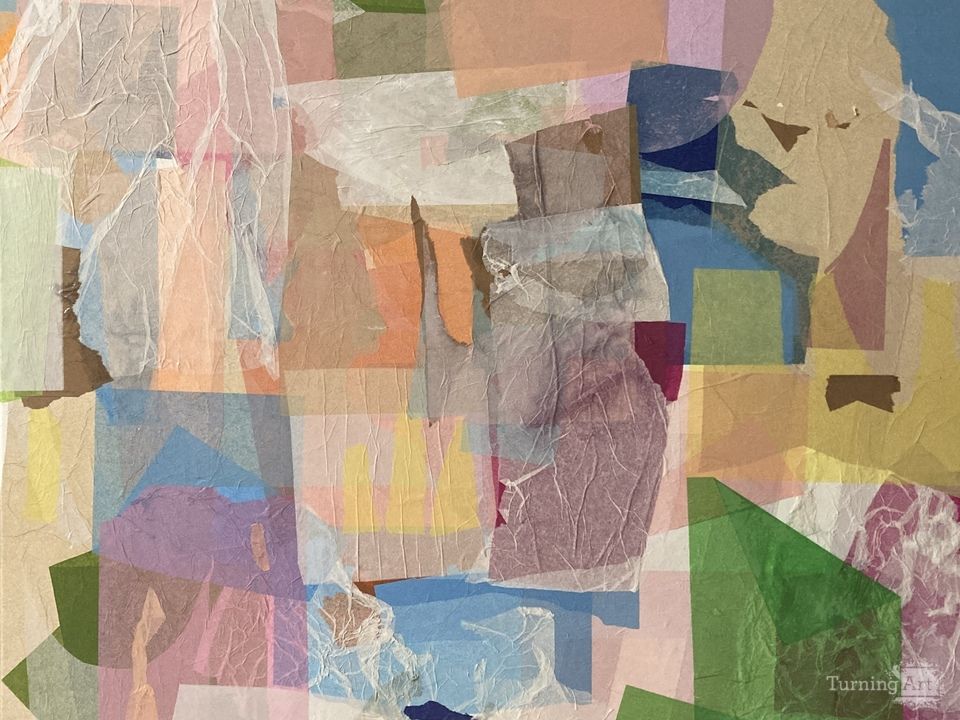
What sparked your interest in partnering with TurningArt?
I am reentering the art world almost as if I’ve never been in it before. Everything is new to me. I wanted to find a platform that could assist me in getting my work seen by a larger audience. I feel that those associated with TurningArt are more focused on the art and artist first. They seem to understand that building relationships and support over time can create a much more stable future for artists both financially and psychologically.
What does having your artwork in the workplace and other commercial or public spaces mean to you?
I believe that any work of art remains incomplete until there is participation by an audience (viewer, reader, etc.). It is a form of communication and the artist brings their intent and the audience, with their own agency, participates in that dialogue. Any venue that facilitates this opportunity for interaction is vital. And of course, it is to every artist's benefit to have the opportunity to sell work so that they may support the creation of more art
To see more featured TurningArtists, return to our blog. To get René's art in your space, set up a free consultation with an Art Advisor here!

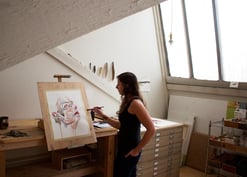

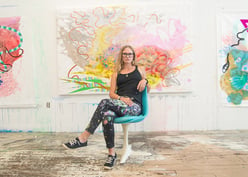

.jpg?width=332&height=177&name=%E6%A9%983-2%20(1).jpg)
